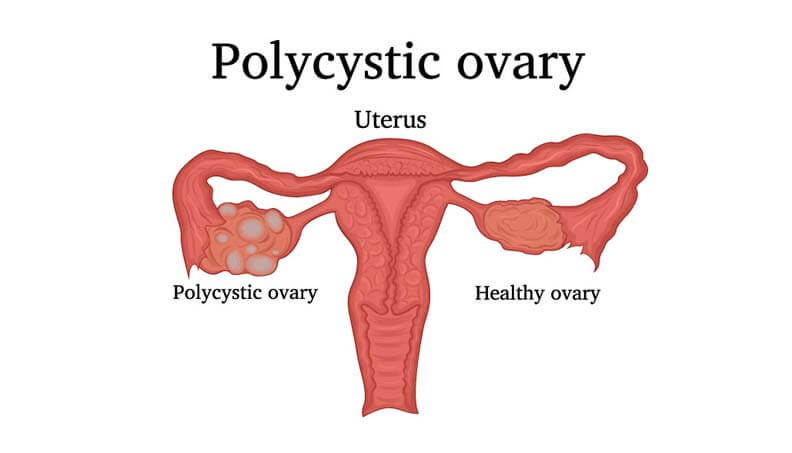PCOD Full Form | What is Polycystic Ovarian Disease
What is the full form of PCOD?
PCOD: Polycystic Ovarian Disease
PCOD stands for Polycystic Ovarian Disease. It is a hormonal disorder that is very common among women at the reproductive age. Around 1/3 women across the world suffer from this hormonal disorder. It mostly occurs at an early age, so mostly young girls of 18 to 26 years of age have to suffer from this disorder.
Polycystic Ovarian DiseasePolycystic Ovarian Disease
The women suffering from PCOD produces a lot of immature eggs that changes into cysts and the ovary becomes a polycystic ovary. Besides this, the ovaries increase in size and produce more androgens (male hormones). However, the PCOD is not a serious medical illness as it can be cured with the right diet and exercise.
produces a lot of immature eggs that changes into cystsproduces a lot of immature eggs that changes into cystsIf not treated, this condition may result in obesity, insulin-resistant diabetes and high cholesterol level and thus may cause heart disease. As of now, there are no defined causes of PCOD. However, there are certain factors that may contribute to PCOD such as unhealthy food habits and an unhealthy lifestyle and pollution. Besides this, when cells become resistant to the action of insulin, the pancreas starts producing more insulin. The increased level of insulin may cause the production of androgen and thus PCOD. It has been found in some researches that PCOD can be a genetic disorder.
may result in obesity, insulin-resistant diabetes and high cholesterol level and thus may cause heart diseasemay result in obesity, insulin-resistant diabetes and high cholesterol level and thus may cause heart diseaseno defined causes of PCODno defined causes of PCODFurthermore, there is no cure for PCOD. So, it mainly focuses on managing individual symptoms such as obesity, infertility, hirsutism, restoration of the menstruation cycle, etc.
no cure for PCODno cure for PCODSome of the common symptoms of PCOD are listed below:
common symptoms of PCODcommon symptoms of PCOD- Irregular periods
- Heavy bleeding
- Abdominal weight gain
- Infertility
- Male pattern hair loss
- Facial hair growth
How is PCOD diagnosed?
A doctor can use different ways to diagnose PCOD such as
A doctor can use different ways to diagnose PCOD such as- Pelvic exam: In this method, the doctor manually and visually examines the reproductive organs for masses, growths and other abnormalities.
- Blood tests: Blood test can be performed to check the levels of hormones.
- Ultrasound: Ultrasound can be done to check the appearance of ovaries and the thickness of the lining of uterus.
Some of the commonly used medication for the treatment of hormonal imbalance during PCOD are given below:
- Progesterone pills or birth control pills help maintain the regular menstrual cycle
- Metformin, which helps in alleviating the symptoms of PCOD
- Clomiphene citrate that helps the eggs to mature and release from the ovary and thus helps women suffering from PCOD to get pregnant
- LH-releasing hormone (LHRH) equivalents